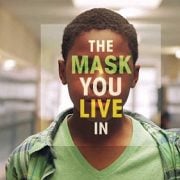To some, the passage from adolescence to adulthood is challenging always but also exhilarating. From high school, to college, to internship, to first entry into their professional life, young adults pursue their dreams and launch their life without much major trauma, as a well-oiled machine.
For others, this transition develop unique physiological, psychological and sociopolitical consequences. In my practice on St Croix in the Virgin Islands, I have often been confronted with young adults returning from the mainland, the United States, in the middle of their college years or immediately after their first entrance in the world of work with multiple issues warranting attention if not therapeutic help.
For African-Americans, the bulk of my practice, the problem is acute. This transition is often challenged by systematic and institutional racial discrimination through residential segregation, aggressive policing and interpersonal racial hassles. These “microaggressions” have immediate and long lasting effects influencing their entire life.
These consequences range from physiological/biological, psychological and sociopolitical effects. Research shows that young adults harassed by cumulative and chronic discrimination suffer from elevated blood pressure, increased heart rate and high stress leading to instances of fight-or-fight responses. Stress level is high and risks for cardiovascular diseases and cellular aging increase. Sleep depravation from heightened vigilance may also be correlated to physiological issues.
The psychological effects may include depression and/or mood swings, suicide and/or suicidal ideation, violence, stress disorders and maladaptive coping strategies such as promiscuity and alcohol/substance abuse. These consequences develop alongside increased social isolation, loss of self worth and poor racial identity. For instance, African-American teenagers with dark skin consider themselves “ugly” when compared to lighter skin individuals. This discrimination is reinforced by current Internet reports and articles. As a result, civic engagement may suffer and further the isolation and desintegration of social tissue.
Therefore, it is of utmost importance for parents, caregivers and educators to foster positive development such as racial pride, coping-based interventions (value-based and self-affirmation programs) and mental health consultation. Furthermore, efforts must be made to create and/or reinforce positive interventions for civic engagement aimed at addressing institutionalized racial discrimination. Programs must also focus on reducing drug and sex risks, increasing positive attitudes toward education, problem-solving skills and positive identity formation.
You might also like
Call 386.747.8892
Email Me
Click to Email me
Opens in a new tabWhatsapp Me
386 747 8892
Text Message Me
Click to Send a SMS
Msg. & Data rates may apply with your carrier
St Croix Support
Physical Address
227 Golden Rock Office #1,
Christiansted, VI 00820
Mailing Address
PO BOX 25023, St. Croix, VI, 00824
386-747-8892
Office Hours By Appointment
Mo-Sat 10:00am-7:00pm
Su: Telehealth only
Review
"Thank you so much Dr. Giraud. You are an amazing professional and a miracle worker". -Kim
Review
"I just wanted to let you know that I am truly thankful for your role in my life. I still struggle but I am a better person and stronger thanks to you. For me, I've always kept a good morale email folder to look at emails when I'm down at work. I hope you keep this and know that you have truly been a blessing to Kimberly and me. And I'm sure all those who have the good fortune of your counsel. Thank you!" -David




